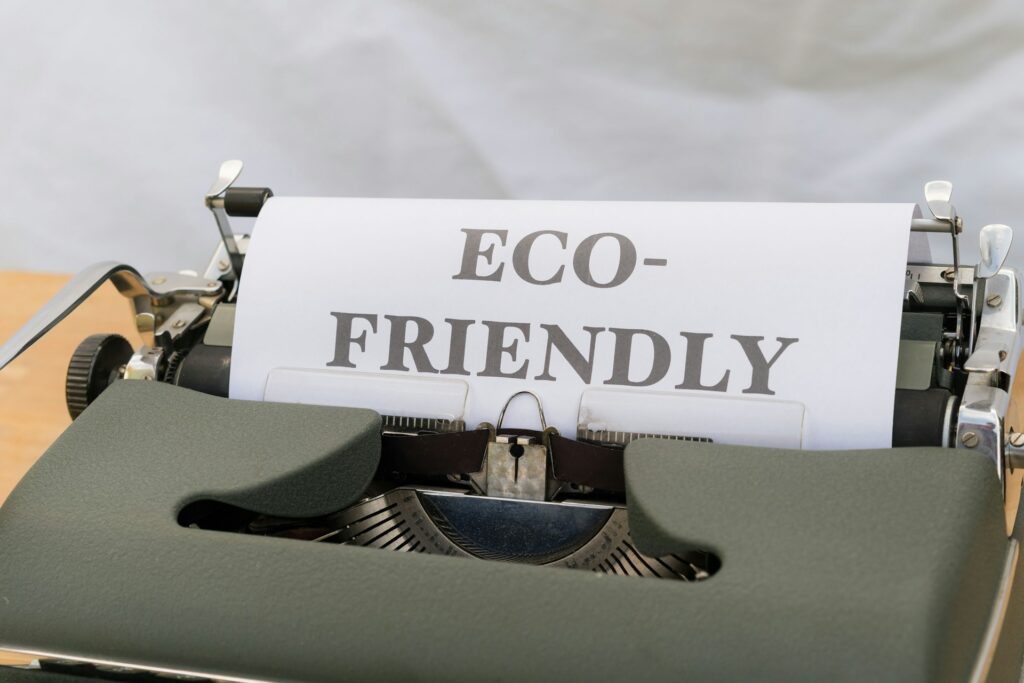
Designers, architects, and manufacturers are seeking materials that deliver both resilience and responsible sourcing. This blog explores various durable and eco-friendly solutions for custom projects, helping professionals find options that don’t compromise on quality or environmental values.
Why Material Choice Matters in Custom Projects
Selecting the right material shapes not only the durability of your finished product, but also its environmental footprint. From furniture to interiors, fashion to transportation, every decision affects longevity, maintenance, and the planet.
Traditional choices like genuine leather, hardwoods, and metals have provided time-tested performance. But as sustainability rises to the forefront, innovative alternatives are redefining industry standards.
Key Attributes of Durable and Sustainable Materials
A material’s strength is just the starting point. For a solution to stand out, it should also be:
- Eco-friendly: Made from renewable or recycled resources, and created through low-impact manufacturing.
- Non-toxic: Free from chemicals or treatments that could harm people or ecosystems.
- Low-maintenance: Resistant to stains, water, and wear to reduce the need for intensive cleaning or repair.
- Long-lasting: Capable of withstanding daily use, environmental stress, and the passage of time.
Manufacturers are now developing materials that combine all these attributes, allowing custom projects to excel on every front.
Synthetic Leather as a Sustainable Alternative
Among the most talked-about innovations is synthetic leather. Unlike conventional leather—which requires resource-heavy cattle farming and chemical tanning processes—synthetic alternatives offer impressive durability and decreased ecological impact.
How Synthetic Leather Stands Out
- Often made with PU or PVC bases, synthetic leathers omit animal products, reducing reliance on livestock agriculture.
- Modern formulations can mimic the texture, flexibility, and patina of real leather while being easier to clean and maintain.
- Many types are designed to be recyclable at the end of their lifecycle, lessening landfill impact.
- Advances have led to water-based coatings and solvent-free production, which further minimizes emissions and water pollution in manufacturing.
For interior upholstery, automotive applications, and fashion goods, synthetic leather’s balance of toughness and eco-friendliness continues to make it a popular choice for custom projects demanding both aesthetics and responsibility.
Renewable and Recycled Plastic Composites
Plastics have a historical reputation for environmental harm, but recent shifts have created a new class of composites using either bio-derived polymers or post-consumer recycling.
- Recycled PET and HDPE: Many companies are reclaiming plastics from bottles and containers, transforming them into robust boards, tiles, and panels.
- Bio-based plastics: Derived from sources like corn starch or sugarcane, these plastics decompose faster and rely on agricultural byproducts, lowering the carbon footprint compared to petroleum-based plastics.
- Wood-plastic composites: Combining recycled wood fibers with plastics, these materials exhibit outdoor resilience and rot resistance, making them suitable for decking, site furnishings, and exterior cladding.
Custom projects using recycled composites not only benefit from their strength and flexibility but also support global recycling infrastructures.
Sustainable Wood and Bamboo Solutions
Wood remains a classic for custom builds, but its sustainability now depends on sourcing and renewal.
- Certified wood: FSC- or PEFC-certified lumber ensures forests are managed ethically and harvested sustainably.
- Bamboo: Fast-growing and highly renewable, bamboo can be crafted into flooring, panels, and even textiles. Its tensile strength can rival that of steel, making it a surprising contender for durable, natural projects.
- Engineered wood products: Laminated timber, cross-laminated timber (CLT), and reclaimed wood offcuts allow creators to maximize resources and reduce waste.
Selecting such solutions enables designers and builders to create stunning, functional environments without encouraging deforestation.
Innovative Textiles and Fabrics
Textile technology is rapidly advancing, offering materials that are both high-performing and sustainable.
- Recycled polyester: PET-derived fabrics are now common in upholstery and soft finishes, with quality that matches virgin synthetics.
- Organic cotton and hemp: Grown without harmful pesticides or excessive water use, these fibers deliver comfort and strength in clothing and interior applications.
- Bio-fabricated textiles: Companies are developing fabrics from mycelium (mushroom roots), pineapple leaves (Piñatex), and even lab-grown proteins, each offering biodegradable qualities and intriguing new textures.
These options support the growing trend of circular design, where products are created with the full lifecycle in mind.
Upcycled and Locally Sourced Materials
Custom projects can gain a unique character and a greener profile by incorporating materials rescued from prior use or sourced locally.
- Upcycled building elements: Repurposed bricks, metals, and timbers can provide history, beauty, and significant savings in embodied energy.
- Locally quarried stone and minerals: Reducing transportation emissions, these choices boost regional economies while lowering a project’s environmental cost.
By integrating upcycled and local solutions, designers not only contribute to environmental wellness but also craft stories and connections within their work.
Advancing Toward Greener Custom Builds
Material science is making rapid strides, and the choices for durable, eco-friendly solutions continue to increase. Careful selection can yield custom projects with aesthetic appeal, structural soundness, and minimal environmental cost.
Whether you opt for synthetic leather, bamboo, recycled plastics, or bio-fabricated textiles, today’s market offers sustainable options suited to almost any vision. With informed material choices, professionals are helping shape a built environment where durability and responsibility move hand in hand.
